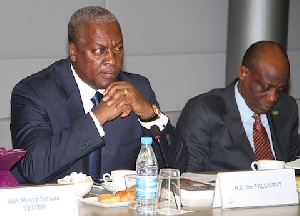A member of the Finance Committee in Parliament Kwaku Kwarteng has challenged government to show visionary leadership in solving the economic woes of the country, and must not spend the IMF bailout on elections.
According to the Obuasi West MP, playing politics with the economy does not augur well for the country.
“Anybody who feels an economy can be fixed by an external agent but not by internal discipline of the people in the country is living a lie,” the legislator told Ultimate FM.
He added: “When we met the IMF team as the Parliamentary Select Committee on Finance, I put this question to them that, what are their experiences with government implementing a programme like this, approaching election year, and they said it was a fantastic question and they urging it on the government and keeping a close eye on government to ensure that in spite of the election they will live reasonably and be prudent in their expenditures,” Kwarteng said.
Ghana’s debt rose from a total public debt of Ghc9.5 billion in January 2009 to Ghc43.9 billion (49.5% of GDP) at the end of August 2013.
Ghana would receive about US$940 million from the International Monetary Fund (IMF) to help turn the ailing economy around.
The money will be released after “consideration by the Executive Board of IMF tentatively scheduled in early April 2015 and a final approval by the IMF board.”
According to a statement from the IMF, Ghana has experienced three difficult years characterised by declining economic growth, increasing inflation rates, rising debt levels and financial vulnerabilities.
“In 2014 economic growth reached its lowest level in many years, with non-oil GDP growing at 4.1 percent, in the context of high-interest rates, a fast depreciating currency, low aggregate demand and a deepening energy crisis. Inflation reached 17 percent, well above the central bank’s inflation target,” the statement added.
But the Obuasi West MP doubts if government will have the courage to carry out the public sector reforms that are required and to do the things that the programme will impose on them.
“Will by leadership to cut waste and to direct resources into productive sectors of the economy is not something anybody can impact on you. The US$940million is not that much money, so when the government comes under intense pressure and their foot soldiers and political interests start pushing them, I can easily foresee this government saying, look even the US$940 million is not enough,” Kwarteng added.
General News of Friday, 27 February 2015
Source: starrfmonline.com













